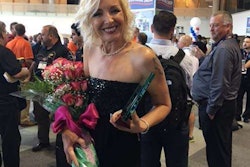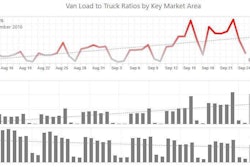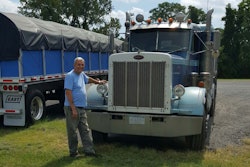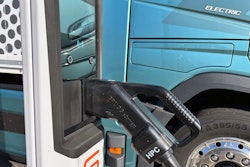This fall’s movement of black athletes sitting out the national anthem reminded me of hearing the anthem sung Aug. 26 at the Great American Trucking Show. The performer was Janine Stange, who in 2014 completed her goal of performing the anthem in all 50 states. At GATS, she was part of an announcement in which 95 trucking-related employers pledged to work closely with the National Guard and military reserves.
Later that day, San Francisco 49ers quarterback Colin Kaepernick stayed seated when the anthem was performed at a game. “I am not going to stand up to show pride in a flag for a country that oppresses black people,” Kaepernick told NFL Media. “It would be selfish on my part to look the other way.”
Overdrive’s readers also feel strongly – as strongly as Kaepernick feels about unjustified police shootings and other black oppression – that they’re abused by governmental officials. Instead of bullets and bludgeons, these officials wield an expanding arsenal of regulations that often add expense and misery to truckers’ everyday lives.
Likewise, many Americans can cite other valid grievances. Is each best resolved by taking a piñata-swat at a widely revered icon? That smacks of the terrorist’s strategy: I’m too weak, lazy or cowardly to fight head-on, so I’ll take pot-shots at a big, defenseless target for maximum flash, even if results are minimal.
When culture splinters into shrill pockets of protest, anything positive and unifying is a welcome relief. For example, the national anthem celebrates “the land of the free,” where even those who disapprove of Kaepernick’s action support his freedom to protest. The song’s references to the War of 1812 remind us that hundreds of thousands of Americans have given their lives to defend such freedoms, embodied in another symbol, the flag.
“Respecting our National Anthem shouldn’t be viewed as something we have to do, but as something we get to do,” Stange told me. “We have the opportunity to collectively put aside what divides us to focus on what unites us: our brave, who keep us the free.”
Many celebrities use their platform to do active good, such as Angelina Jolie adopting African orphans or skateboarder Tony Hawk fighting AIDS and cancer. The grandstanding of Kaepernick and his imitators demands much less. He gets a huge media coverage at the expense of a rare symbol of higher ideals – values that make justice possible, even probable, for those he professes concern for. The selflessness he so proudly hailed comes across as just the opposite.









